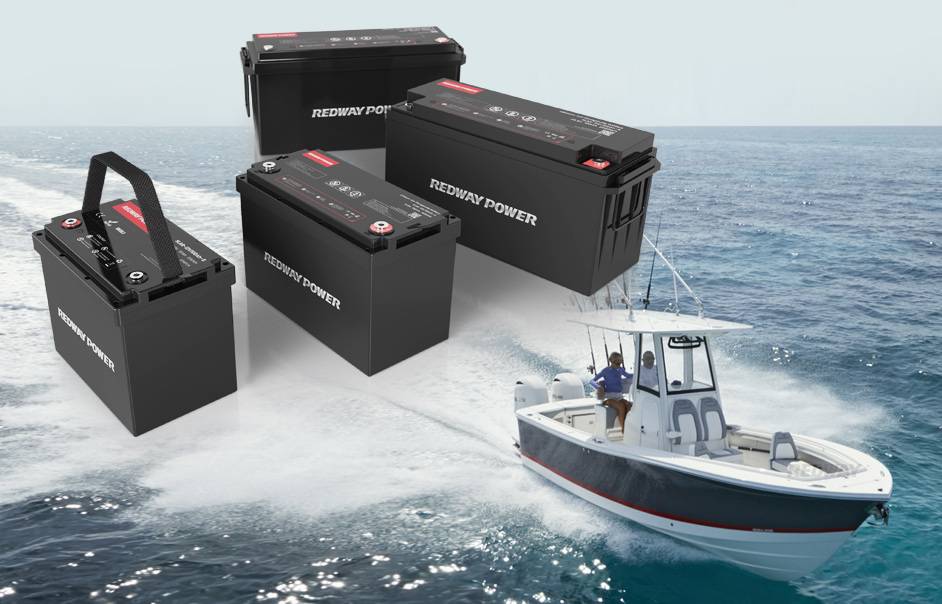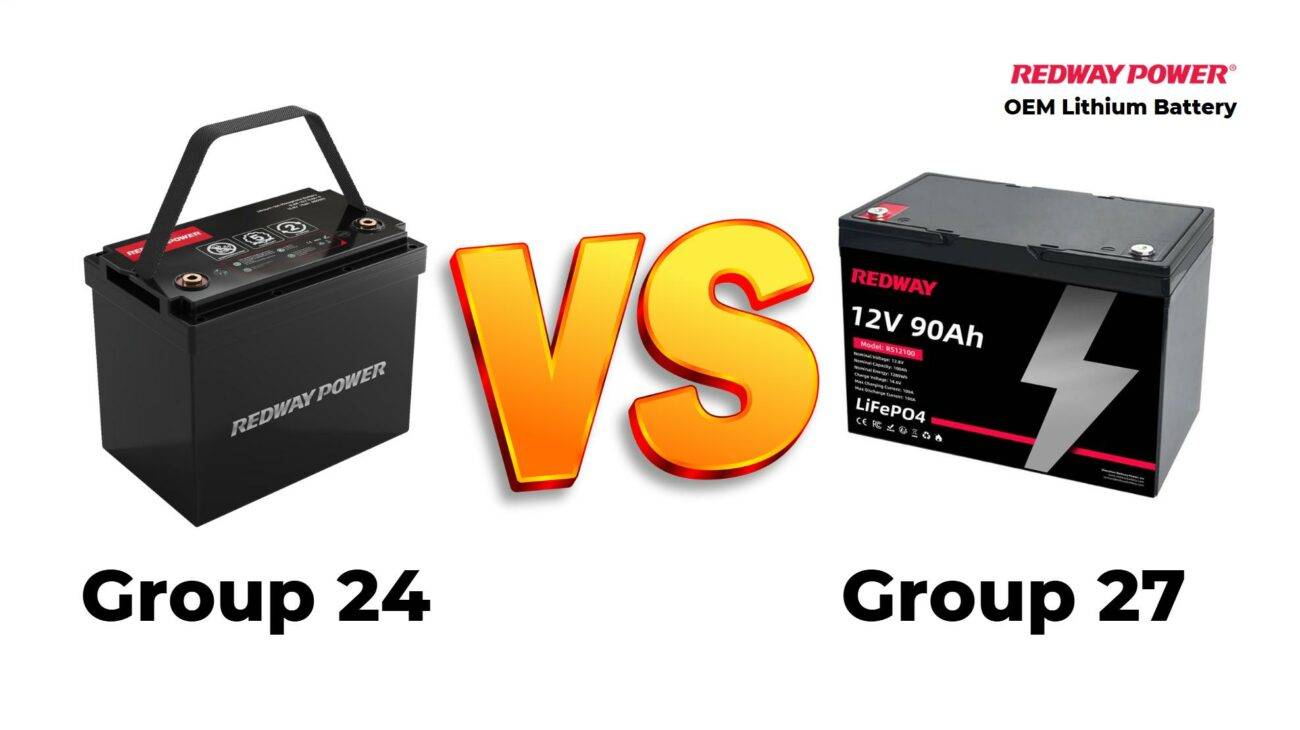- Forklift Lithium Battery
-
48V
- 48V 210Ah
- 48V 300Ah
- 48V 420Ah (949 x 349 x 569 mm)
- 48V 420Ah (950 x 421 x 450 mm)
- 48V 456Ah
- 48V 460Ah (830 x 630 x 590 mm)
- 48V 460Ah (950 x 421 x 450 mm)
- 48V 460Ah (800 x 630 x 600 mm)
- 48V 460Ah (820 x 660 x 470 mm)
- 48V 500Ah
- 48V 560Ah (810 x 630 x 600 mm)
- 48V 560Ah (950 x 592 x 450 mm)
- 48V 600Ah
- 48V 630Ah
-
48V
- Lithium Golf Cart Battery
- 12V Lithium Battery
12V 150Ah Lithium RV Battery
Bluetooth App | BCI Group 31
LiFePO4 Lithium
Discharge Temperature -20°C ~ 65°C
Fast Charger 14.6V 50A
Solar MPPT Charging - 24V Lithium Battery
- 36V Lithium Battery
- 48V Lithium Battery
-
48V LiFePO4 Battery
- 48V 50Ah
- 48V 50Ah (for Golf Carts)
- 48V 60Ah (8D)
- 48V 100Ah (8D)
- 48V 100Ah
- 48V 100Ah (Discharge 100A for Golf Carts)
- 48V 100Ah (Discharge 150A for Golf Carts)
- 48V 100Ah (Discharge 200A for Golf Carts)
- 48V 150Ah (for Golf Carts)
- 48V 160Ah (Discharge 100A for Golf Carts)
- 48V 160Ah (Discharge 160A for Golf Carts)
-
48V LiFePO4 Battery
- 60V Lithium Battery
-
60V LiFePO4 Battery
- 60V 20Ah
- 60V 30Ah
- 60V 50Ah
- 60V 50Ah (Small Size / Side Terminal)
- 60V 100Ah (for Electric Motocycle, Electric Scooter, LSV, AGV)
- 60V 100Ah (for Forklift, AGV, Electric Scooter, Sweeper)
- 60V 150Ah (E-Motocycle / E-Scooter / E-Tricycle / Tour LSV)
- 60V 200Ah (for Forklift, AGV, Electric Scooter, Sweeper)
-
60V LiFePO4 Battery
- 72V~96V Lithium Battery
- Rack-mounted Lithium Battery
- E-Bike Battery
- All-in-One Home-ESS
- Wall-mount Battery ESS
-
Home-ESS Lithium Battery PowerWall
- 24V 100Ah 2.4kWh PW24100-S PowerWall
- 48V 50Ah 2.4kWh PW4850-S PowerWall
- 48V 50Ah 2.56kWh PW5150-S PowerWall
- 48V 100Ah 5.12kWh PW51100-F PowerWall (IP65)
- 48V 100Ah 5.12kWh PW51100-S PowerWall
- 48V 100Ah 5.12kWh PW51100-H PowerWall
- 48V 200Ah 10kWh PW51200-H PowerWall
- 48V 300Ah 15kWh PW51300-H PowerWall
PowerWall 51.2V 100Ah LiFePO4 Lithium Battery
Highly popular in Asia and Eastern Europe.
CE Certification | Home-ESS -
Home-ESS Lithium Battery PowerWall
- Portable Power Stations
Why Have LFP Batteries Become Popular in the Marine Industry?
Lithium Iron Phosphate (LiFePO4 or LFP) is a type of lithium-ion battery known for its stability and safety features. It has become increasingly popular in marine applications due to its ability to deliver reliable power while minimizing weight and maximizing efficiency.
How Does High Energy Density Benefit Marine Applications?
The high energy density of LFP batteries, typically ranging from 90 to 160 Wh/kg, allows them to store substantial amounts of energy in a compact form. This is particularly advantageous in marine environments where space is limited, enabling boats to carry more power without adding unnecessary weight.Chart: Energy Density Comparison
| Battery Type | Energy Density (Wh/kg) |
|---|---|
| Lithium Iron Phosphate (LFP) | 90-160 |
| Lead-Acid | 30-50 |
| Nickel Manganese Cobalt (NMC) | 150-300 |
Why Is the Long Lifespan of LFP Batteries Important?
LFP batteries can last between 5,000 to 7,000 cycles, significantly outpacing traditional lead-acid batteries that typically last only 300-500 cycles. This extended lifespan not only reduces maintenance costs but also minimizes downtime for boat owners.Chart: Lifespan Comparison
| Battery Type | Lifespan (Cycles) |
|---|---|
| Lithium Iron Phosphate (LFP) | 5,000-7,000 |
| Lead-Acid | 300-500 |
| AGM | 1,000-1,200 |
What Safety Features Make LFP Batteries Ideal for Marine Use?
Safety is paramount in marine applications, and LFP batteries excel due to several key features:
- Thermal Stability: They are less prone to overheating and thermal runaway.
- Non-Toxic Materials: Free from harmful substances like lead or cadmium.
- Robust Design: Built to withstand harsh marine conditions.
These safety attributes make them a preferred choice for boaters prioritizing reliability.
How Does Lightweight Design Enhance Boat Performance?
The lightweight nature of LFP batteries contributes significantly to improved boat performance by reducing overall weight without sacrificing power. This reduction enhances fuel efficiency and allows for better handling and agility on the water.
Know more:
How Does LFP Self-Discharge Rate Compare to Other Lithium-Ion Batteries?
Why Are LFP Batteries a Great Choice for Marine Applications?
What Is the Energy Density of LFP Batteries and How Does It Benefit Marine Use?
How Does LFP Battery Cycle Life Compare to Other Batteries?
Why Have LFP Batteries Become Popular in the Marine Industry?
Why Are LFP Batteries Environmentally Friendly?
LFP batteries are considered environmentally friendly because they:
- Have a long lifespan that reduces waste.
- Are made from recyclable materials.
- Produce no harmful emissions during operation.
This eco-friendliness aligns with growing environmental awareness within the marine industry.
How Do LFP Batteries Compare to Other Battery Technologies?
Compared to traditional lead-acid batteries, LFP batteries offer superior performance characteristics such as:
- Higher energy density.
- Longer lifespan.
- Faster charging capabilities.
These advantages make them a more attractive option for modern marine applications.
What Are the Maintenance Requirements for LFP Batteries?
LFP batteries require minimal maintenance compared to traditional lead-acid options:
- No need for watering or equalization charges.
- Regular inspections are recommended to ensure connections are clean and secure.
This low maintenance requirement makes them convenient for boat owners.
Conclusion
Lithium Iron Phosphate (LFP) batteries have gained popularity in the marine industry due to their high energy density, long lifespan, safety features, lightweight design, and environmental benefits. As boating technology continues to evolve toward more efficient and sustainable solutions, LFP batteries represent a forward-thinking choice that enhances both performance and safety on the water.
Expert Views
“Lithium Iron Phosphate batteries are transforming the marine landscape with their unmatched safety and efficiency. As more boaters recognize these benefits, we can expect a significant shift towards these advanced battery technologies.” — Expert from Redway
FAQ Section
- What is Lithium Iron Phosphate (LFP)?
Lithium Iron Phosphate is a type of lithium-ion battery known for its stability and safety features, making it ideal for marine applications. - How does high energy density benefit marine applications?
High energy density allows boats to store substantial power without excessive weight, optimizing space and enhancing performance. - Why is the long lifespan of LFP batteries important?
A longer lifespan reduces replacement frequency and costs while minimizing downtime for boat owners. - What safety features make LFP batteries ideal for marine use?
Key safety features include thermal stability, non-toxic materials, and robust design that withstands harsh conditions. - How do LFP batteries compare to other battery technologies?
They offer superior energy density, longer lifespan, and faster charging capabilities compared to traditional lead-acid batteries.
















